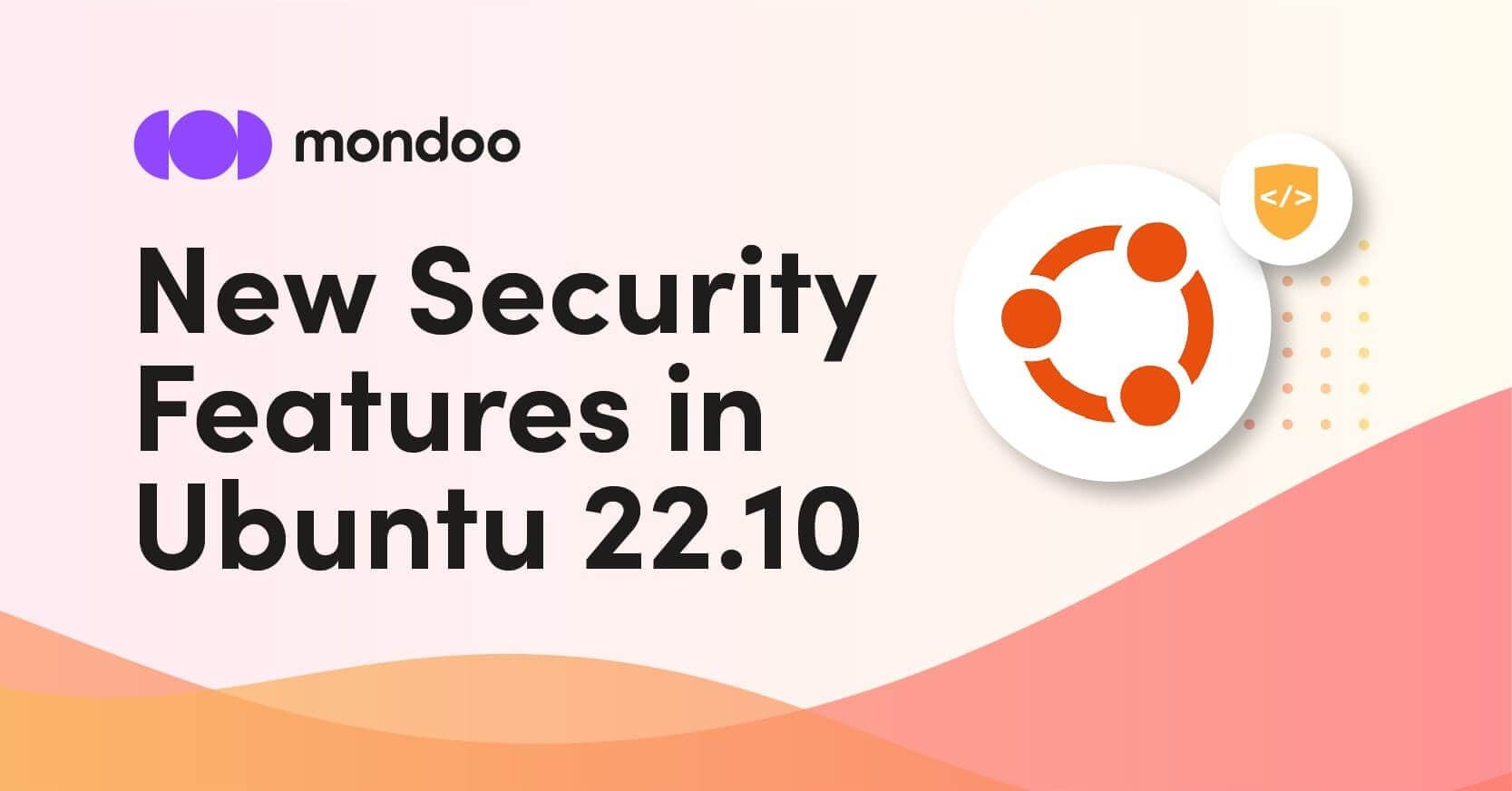Looking for information on later Ubuntu releases? Be sure to check out our newer blogs:
OpenSSH 9.0
One of the most significant changes in Ubuntu 22.10 is the inclusion of the new OpenSSH 9.0 release. This update introduces several security enhancements, including:
- Stronger default key exchange method
- Removal of the legacy SCP protocol
- More secure execution of sshd
OpenSSH 9.0 uses the new Streamlined NTRU Prime + x25519 key exchange method, making it less vulnerable to future quantum computer attacks. This new key exchange method includes a fallback to the well-tested x25519 default introduced in previous OpenSSH releases. Additionally, the update removes the insecure SCP protocol, which has caused several CVEs over the years. The scp command will now use the newer and more secure SFTP protocol under the hood, maintaining backward compatibility as long as both client and server run OpenSSH 8.7 or later releases.
Sudo 1.9.11
Sudo 1.9.11, included in Ubuntu 22.10, has several useful security improvements that help users better control who can use sudo and how authentication behaves. Here are some of the key changes:
- POSIX regular expressions are now supported in the sudoers file to replace unsafe * matches, which could allow users to execute commands not intended by administrators.
- Custom sudo prompts can be used when also using the sudo Kerberos module.
- Commands can be forced to run under AppArmor profiles that further lock down security with a new APPARMOR_PROFILE sudoers configuration option.
Systemd 251
Systemd, the heart of modern Linux systems, has a large impact on the overall security of hosts. The new release, systemd 251, includes several changes that make services more secure. Here are some of the key changes:
- Limited filesystem and network access: New systemd unit configuration options allow users to limit the filesystem and network access of services. This is particularly useful in limiting the attack surface if a service is compromised by attackers.
- Encrypted credentials: Credentials used by services at startup can now be encrypted and stored locally or within TPM2 chips using a systemd-creds command. These credentials are decrypted and made available to the service at startup but no longer need to be stored in configuration files that could be read by users.
- Safe user data: For users sharing a system with multiple users, systemd-homed has been improved to keep user data safe between sessions. systemd-homed will now repeatedly attempt to unmount the user’s home directory on logout to prevent sensitive data from being accessible to the next user.
Kernel 5.19
Kernel 5.19 includes several small but significant security improvements that have landed between the previous kernel 5.15 and Ubuntu 22.10's kernel 5.19 release. Here are some of the key changes:
- Secure virtualization with new CPU support from AMD and Intel, protecting guest VMs from hypervisor-based attacks. AMD’s Secure Nested Paging (SEV-SNP) provides memory integrity protection, and Intel’s Trust Domain Extensions (TDX) provides both memory integrity and encryption.
- Better random number generation to not only improve cryptography but also increase performance.
- Indirect Branch Tracking on Intel’s latest CPUs. Indirect Branch Tracking (IBT) is a new Control-Flow Enforcement Technology (CET) method that provides hardware-based protection against jump/call oriented programming (JOP / COP) attacks.
- Straight-line speculation attack mitigation. Kernel level mitigation against the Spectre variant straight-line speculation CPU attack originally reported by ARM, but present in multiple CPUs.
- netfilter egress hooks. Classify and potentially reroute traffic egressing your host based on rules to mitigate data exfiltration.
Upgrading to Ubuntu 22.10 using do-release-upgrade command
Ideally, we'd always provision new systems when a new operating system ships. But we don't live in an ideal world. There always seem to be special snowflake servers, and reprovisioning user workstations impacts productivity. When we can't provision fresh systems, we can always perform an upgrade using Canonical's do-release-upgrade command:
Bash# fully update and cleanup our existing 22.04 systemsudo apt-get updatesudo apt-get upgradesudo apt-get autoremove# perform the upgradesudo apt-get install update-manager-coresudo do-release-upgrade
How to further secure your system with hardening settings and Mondoo's security platform
In addition to the security updates that come with Ubuntu 22.10, there are further steps you can take to secure your system. One such step is applying hardening settings and ensuring that all critical packages are updated. You can use the open source cnspec tool from Mondoo and the Mondoo SaaS platform to scan and report on security best practices, package vulnerabilities, and CIS benchmarks. Mondoo is a hosted security platform that automates manual security processes for DevOps and security practitioners, helping users quickly find known vulnerabilities and misconfigurations.
How to scan your Ubuntu 22.10 system using Mondoo's cnspec
To scan your Ubuntu 22.10 system using Mondoo's cnspec tool, you will first need to install the cnspec package. You can do so by running the following command:
Bashbash -c "$(curl -sSL https://install.mondoo.com/sh/cnspec)"
Once cnspec is installed, you can scan your system for misconfigurations. For instance, you can perform a local scan by running the following command:
Bashcnspec scan
cnspec can scan a range of things, from cloud accounts to Kubernetes clusters, as well as SaaS services such as M365 or Google Workspace.
When you run a local scan, cnspec will generate a report highlighting the security status of your system. The report includes the list of controls that passed and failed, with their associated scores.
How to perform advanced security scanning with the Mondoo Platform and cnspec
If you authenticate cnspec with the Mondoo Platform, the tool can perform additional checks, such as scanning packages for CVEs, and CIS and BSI compliance policies. Results of the scan will be stored on the Mondoo Platform for analysis.
On the Mondoo Platform console, you can view a high-level overview of the scan status of each policy and package vulnerability, as well as EOL data. For instance, you can check if the system is vulnerable to any known security threats, and see which packages need to be updated to ensure the best security practices.
Final Thoughts
If you're a sysadmin or security engineer, you know how tough it can be to keep up with all the security updates and patches required to protect your company's assets. But with the Mondoo Platform, you can automate many of these tasks and stay on top of your security game. Plus, you'll have access to a community of like-minded professionals who can help you troubleshoot and share tips.
Don't waste any more time struggling with manual updates and outdated security protocols. Sign up for a free community account on Mondoo and see how easy security can be!


